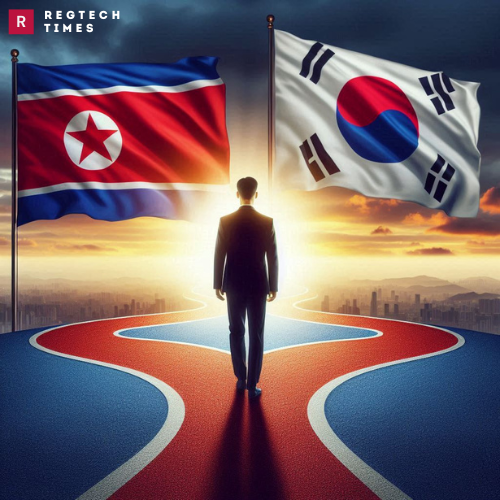In a significant turn of events in November, Ri Il-kyu, a senior North Korean diplomat based in Cuba, fled to South Korea accompanied by his wife and children. Ri Il-kyu’s defection marks one of the highest-ranking diplomatic defections from North Korea since Thae Yong-ho’s in 2016, shedding light on internal discontent and the regime’s challenges amid shifting geopolitical dynamics.
Ri Il-kyu’s Diplomatic Mission and Personal Motivations
Ri Il-kyu was entrusted with a critical mission at Pyongyang’s embassy in Cuba: to obstruct the establishment of diplomatic relations between South Korea and Cuba. This assignment highlighted North Korea’s persistent efforts to isolate itself diplomatically while leveraging longstanding alliances, such as with Cuba, one of its few remaining communist allies.
The defection, reported by South Korea’s Chosun Daily, was prompted by personal hardship and disillusionment with Pyongyang’s leadership. Ri Il-kyu sought medical treatment in Mexico for an injury sustained in Cuba, but his request was denied. This denial, coupled with purported unfair treatment and corruption within North Korea’s foreign ministry, fueled his decision to defect. In an exclusive interview, Ri Il-kyu revealed that his disillusionment stemmed from a regime that offered “no hope” under the rule of Kim Jong-un.
China Expands Spy Base in Cuba; US Alarmed by Growing Espionage Challenge
Implications of North Korea’s Elite and Defection Trends
The ramifications of Ri Il-kyu’s defection go beyond individual grievances. It highlights a broader trend of defections among North Korea’s elite, a group that plays a crucial role in maintaining the regime’s stability and international relations. South Korea’s unification ministry noted a significant increase in defections in recent years, with elite defectors like Ri Il-kyu accounting for a notable portion, suggesting growing discontent and internal fissures within North Korea’s ruling circles.
Espionage Unmasked : The Deep Roots of Cuban Intelligence in the United States
Regime Response and International Impact
North Korea’s response to Ri Il-kyu’s defection has been multifaceted, reflecting its efforts to maintain control and deter others from defecting. Reports indicate that Pyongyang has allegedly plotted “terrorist” attacks targeting South Korean officials and citizens overseas in response to defections by high-profile figures like Ri Il-kyu. This aggressive posture highlights the regime’s desperation to prevent defections, which it perceives as threats to its authority and international standing.
China Warns US over False Allegations of Spy Stations in Cuba; Terms Media Report Dirty Bomb
Additionally, North Korean embassies abroad are said to have turned to submitting misleading reports attributing defections by their colleagues to external factors like South Korean interference. This tactic aims to evade punishment from Pyongyang’s leadership, which has historically imposed severe penalties on defectors and their families, including imprisonment and even execution.
Diplomatic Fallout and Strategic Shifts
Ri Il-kyu’s defection also coincided with a significant diplomatic development between South Korea and Cuba. Just months after his departure, Seoul and Havana established formal diplomatic ties, signaling a strategic shift that North Korea had actively sought to obstruct. This alignment emphasizes the broader implications of defections like Ri Il-kyu’s on North Korea’s diplomatic maneuvering and its diminishing ability to isolate itself on the international stage.
Global Perspectives
The broader international community has closely monitored Ri Il-kyu’s defection and its implications for North Korea’s internal challenges and the regime’s stability. Such high-profile defections not only reveal cracks within the regime but also present opportunities for intelligence gathering and insights into North Korea’s opaque leadership structure. They serve as critical indicators of the regime’s stability and its ability to navigate external pressures, including sanctions and diplomatic isolation.
As defections by high-ranking officials like Ri Il-kyu continue to capture global attention, they emphasize the evolving dynamics of North Korea’s diplomatic strategies and internal power struggles. The regime’s response to these defections, marked by both aggression and propaganda, reflects its precarious position amidst a changing geopolitical landscape.
Ri Il-kyu’s defection stands as a poignant testament to the challenges facing North Korea’s leadership and its diminishing ability to insulate itself from international scrutiny. It emphasizes the toll of dissent within the regime and its wider implications for regional stability and global security. As defections among North Korea’s elite persist, they will undoubtedly shape future diplomatic relations and strategic calculations on the Korean Peninsula and beyond.


